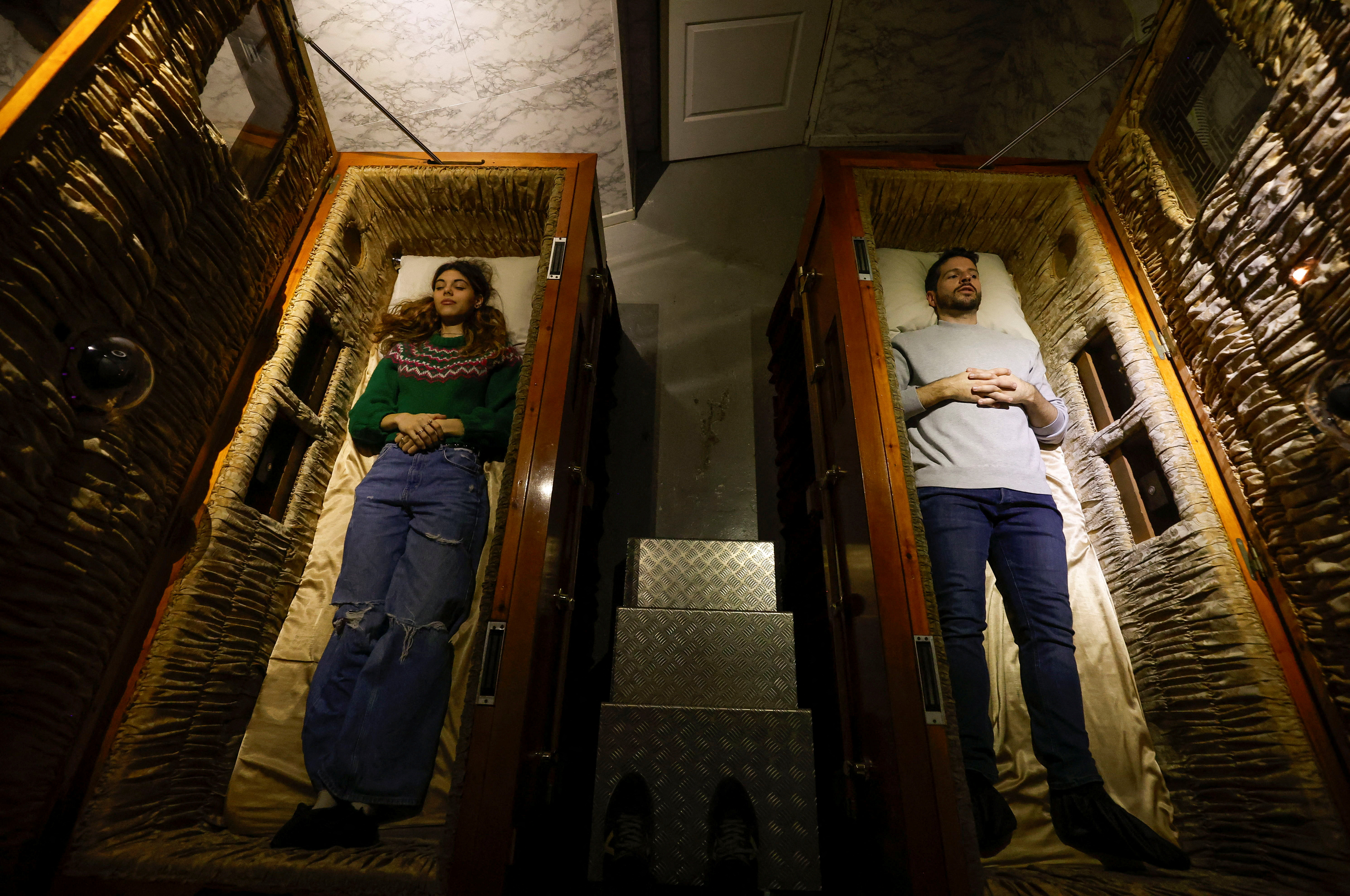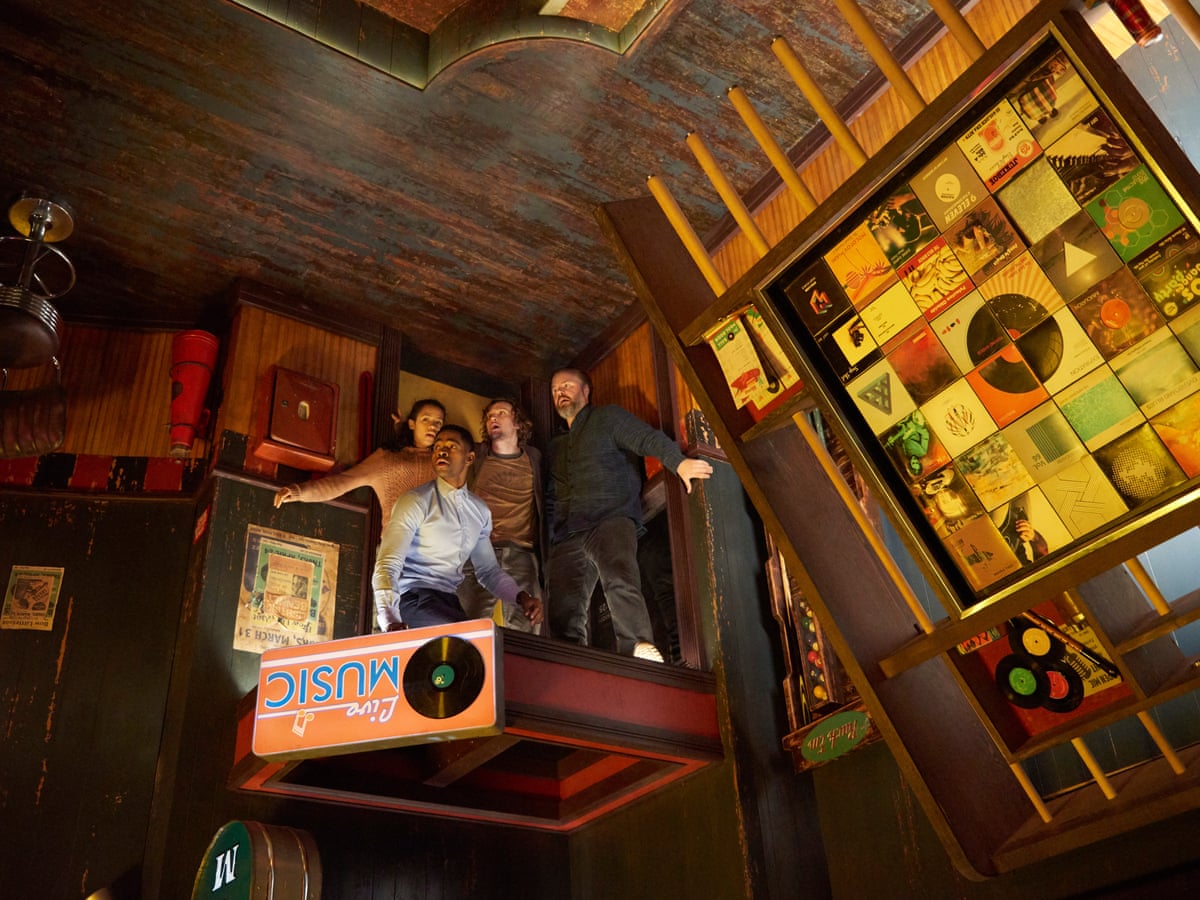Thrilling Escape Room in Minneapolis Mall of America-- Book Now
Thrilling Escape Room in Minneapolis Mall of America-- Book Now
Blog Article
Group Methods: Exactly How to Work together Effectively in an Escape Space
Groups have to actively listen to each member's insights, appoint functions that align with individual strengths, and preserve regular check-ins to make certain focus and protect against redundancy. By promoting an environment that values communication and adaptability, groups can significantly enhance their efficiency and success prices.
Establish Clear Interaction

To help with clear interaction, it is important to mark a main point of call for information circulation. Quick, concentrated updates from each team member can maintain the group notified without frustrating them with information.

Assign Duties Tactically
While clear communication establishes the foundation for reliable team effort, appointing functions strategically makes certain that each employee's toughness are utilized properly. In an escape area situation, the time-sensitive and intricate nature of difficulties requires a well-organized approach to job delegation. By determining and leveraging private expertises, teams can optimize their problem-solving capabilities and enhance overall efficiency.
A person with an eager eye for information could excel in finding covert items, while a sensible thinker can be much better matched to addressing puzzles. This role frequently needs strong business and social abilities.
Second, make certain that duties are adaptable and versatile. As brand-new challenges emerge, the team should have the ability to pivot, reapportioning jobs as required. This adaptability helps keep energy and protects against traffic jams that can happen because of stiff role projects.
Eventually, a strategic technique to function project not only optimizes the staminas of each team member but additionally cultivates a cohesive environment, driving the group in the direction of a successful escape.
Make Use Of Diverse Abilities
Recognizing and taking advantage of the diverse abilities within your team can significantly raise your performance in a retreat area. Each team participant brings distinct toughness to the table, and successfully leveraging these capabilities can accelerate problem-solving and boost overall performance. For example, a group member with solid logical skills could excel at decoding complicated codes or patterns, while another with keen empirical abilities might promptly find surprise clues that others could ignore.
Urge group participants to articulate their understandings and concepts immediately, ensuring that all prospective services are considered. Additionally, assigning tasks that straighten with each participant's staminas can avoid bottlenecks and guarantee that development is continuous.
Moreover, diversity in abilities commonly equates to diversity in thinking styles, which is indispensable in a getaway room setup. While some obstacles may call for logical thinking and accuracy, others might take advantage of creative and side thinking. By identifying and leveraging this variety, teams can address a more comprehensive variety of difficulties better, therefore boosting their possibilities of an effective getaway.
Manage Time Effectively

Recognize noticeable problems and separate jobs based on group members' strengths, making certain that no one is idle. This practice can aid maintain the team concentrated and stop time from slipping away undetected.
In addition, prevent one-track mind. If a challenge is taking too long, revolve group members or go on to another obstacle, returning later on with fresh perspectives. Interaction is extremely important-- keep everybody updated on addressed challenges and remaining jobs to avoid repetitive efforts.
Last but not least, utilize any kind of tips or hints sparingly however strategically - best escape room. Understanding when to ask for assistance can save useful time. By sticking to these time administration concepts, teams can significantly enhance their chances of an effective and enjoyable getaway area experience
Debrief and Reflect
Representation is a vital element of team advancement and renovation in the context of escape spaces. As soon as the challenge is completed, whether efficiently investigate this site or otherwise, it is important for the team to take part in a structured debriefing session. This process enables group participants to analyze their performance, recognize toughness, and pinpoint areas for enhancement.
Start the debrief by discussing what went well. Highlight certain circumstances of reliable communication, analytical, and partnership. Identifying these favorable habits enhances them and motivates their repetition in future obstacles.
Review minutes of complication, miscommunication, or inadequate approaches. Motivate an open and useful dialogue where team members can share their perspectives without fear of objection.
Conclusion
In conclusion, effective cooperation in an escape room is predicated upon clear interaction, critical duty tasks, the efficient usage of diverse abilities, and proficient time management. Regular check-ins and structured debriefings are essential for keeping emphasis and fostering continuous renovation. By producing a cohesive and flexible group environment, the probability of effectively resolving problems and accomplishing the objective of escaping the space is substantially enhanced. This strategy not just makes certain success yet likewise advertises collective development and discovering.
Report this page